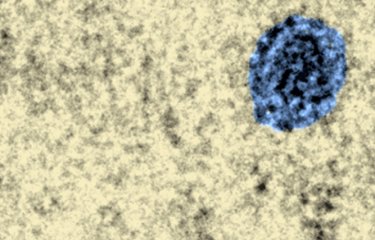-
News | 2018.03.06
A Global mapping of mosquitoes vectors of Zika virus
In 2013, the Zika virus, an arbovirus transmitted by Aedes mosquitoes, emerged in the Pacific Islands. In 2015, the first cases of infection are detected in northwestern Brazil. In just a few months, the virus is spreading throughout the country and in the tropical zone of Latin America, causing an unprecedented epidemic and associated with a large number of neurological disorders (Guillain-Barré...
-
News | 2019.04.26
Neurological impact of the Zika virus finally exposed
Zika virus infection is still a global public health problem. The causative agent is the Zika virus, which is spread by mosquitoes of the Aedes genus. Numerous outbreaks have been reported in Asia and Africa since 2007, and more recently in Central and South America. Although the virus is well known to researchers and physicians, the incidence of neurological complications and their clinical...
-
Document de presse | 2018.03.15
Zika: an accurate estimation of the neurological risks in unborn children
Thanks to a study conducted in pregnant women and their unborn children during the Zika epidemic in the French territories in the Americas, researchers from Inserm, Institut Pasteur and the University Hospital of Guadeloupe have been able to accurately estimate the risk of severe neurological complications in babies. They have also determined that the first trimester of pregnancy is the period...
-
Portrait | 2025.10.10
Sarah Merkling wants to "pasteurize" mosquitoes!
At the Institut Pasteur, Sarah Merkling's research focuses on a topic that is still largely unknown: interactions between mosquitoes and viruses. She boldly devises novel strategies based on state-of-the-art technologies. Her aim is to combat diseases like dengue and Zika, which are gaining ground and currently represent a threat for more than 50% of the world's population.
-
News | 2023.05.04
Tiger mosquito in France: 71 départements on red alert
The French health authorities have updated their map showing distribution of the tiger mosquito in France. On January 1, 2023, 71 départements were reported on "red alert" – four more than on January 1, 2022. The Aedes albopictus mosquito, originally from Asia, has been present in France since 2004. It is a vector for viruses that spread diseases such as dengue, chikungunya and Zika.
-
News | 2016.02.15
The Institut Pasteur joins the Global Virus Network (GVN) Zika Task Force
Global Virus Network (GVN) launches Zika Task Force comprised of leading virus researchers from around the globe. GVN catalyzes international collaborations in an effort to address the urgent need to share information and research to better combat the global Zika outbreak.
-
News | 2019.11.25
In France, Aedes albopictus better transmits the African "Zika" than the Asian one
Researchers from the Institut Pasteur (Paris) have described the vector competence of the mosquito Aedes albopictus from south of France to different genotypes of the Zika virus. They demonstrate that this Ae. albopictus from France transmits the Zika virus of African origin better than the one of Asian origin.We all remember the Zika epidemic that hit the Pacific Islands (2013-2014) and the...
-
News | 2017.08.24
Researchers at the Institut Pasteur in French Guiana describe the persistence of Zika virus in semen
Researchers of the virology laboratory at the Institut Pasteur in French Guiana, in collaboration with the Military Health Service, have just demonstrated, through a study carried out on about ten male patients, that the Zika virus remains present in the semen for 30 to 45 days after the onset of the first symptoms due to infection with the virus. In a patient, this duration was 188 days.These...
-
News | 2017.05.09
The Zika virus modifies the morphology of the cells and makes them implode
Researchers at the Institut Pasteur (Paris) and Inserm* have successfully filmed the infection of human cells by the Zika virus, using video microscopy. Significant morphological changes to the cell were observed, whereas the cytopathic effects of the Zika virus were hitherto poorly characterized. This allows the virus to multiply before the cell implodes.*This work was supported by grants from...
-
News | 2022.08.24
ZIKAlliance project: Zika vector competence data reveals risks of outbreaks
A publication published this summer looks back at the contribution of the European ZIKAlliance project, launched in 2016 following the Zika epidemic in the Pacific Islands and America. A global analysis of the competence of potential vectors was carried out, the most comprehensive study of vector competence to date using the same protocols. This study reminds us that vector-borne diseases are...

